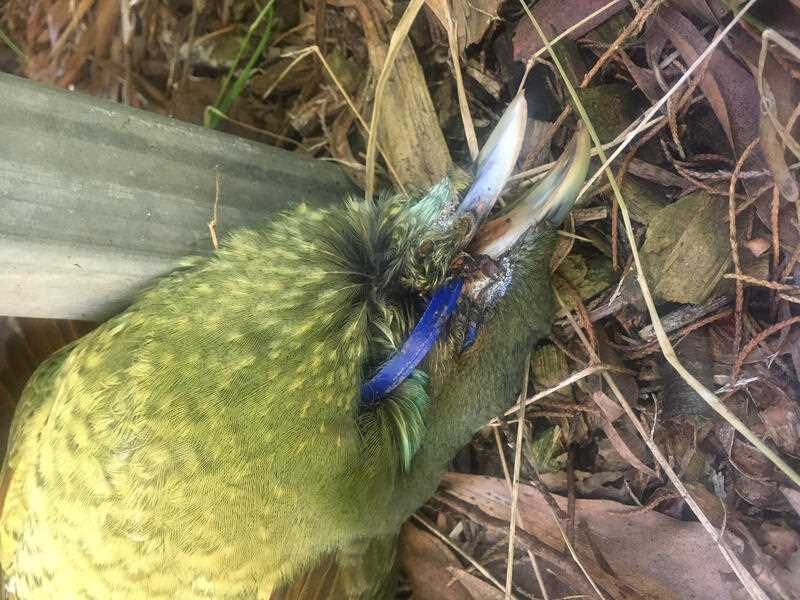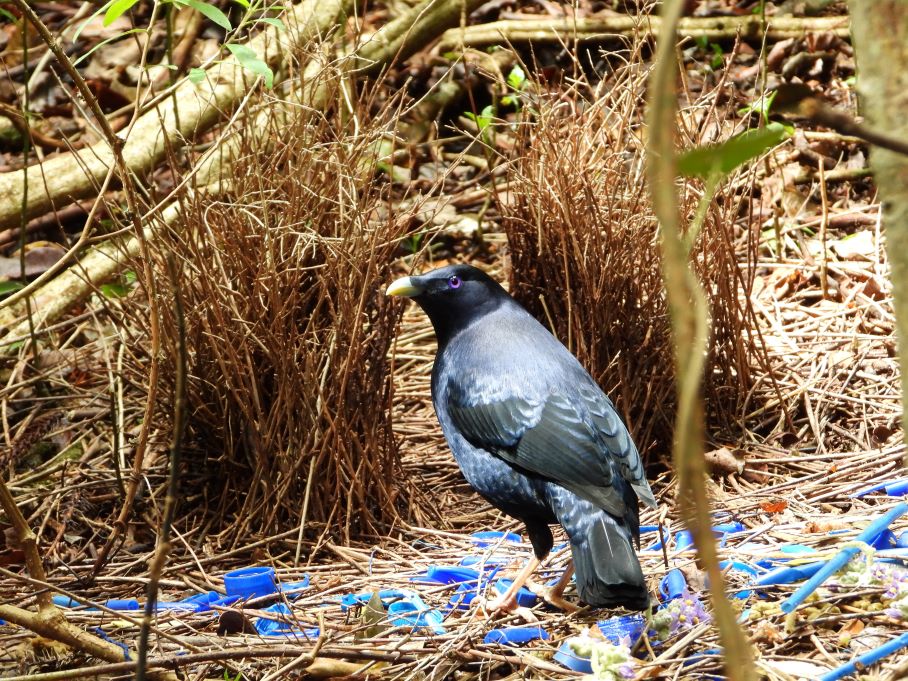A major supermarket is shifting to clear milk bottle lids to help recycling but wildlife groups say it will also save bowerbirds from ghastly deaths.
The satin bowerbird is common along Australia’s east coast and is known for its fascination with all things blue.
The males are on a permanent mission for treasures of the right hue, which they use to decorate their bowers and impress the ladies.
That used to mean rare blue flowers and the like, but with the landscape littered with rubbish it now means lots of plastic and frequently the blue lids and rings that seal bottles of fresh milk.
When birds grasp the rings, they tend to flip backwards over their heads and become stuck, leaving them to die from starvation and thirst.

The wildlife rescue group WIRES, BirdLife Australia and WWF-Australia have applauded a move by Woolworths to move to clear tops and rings, and want other grocery chains and branded milk producers to follow suit.
“I’ve seen photos of bower birds with these things flipped over their necks and they’re pretty awful,” says WIRES spokesman John Grant.
“The bird pick them up and they immediately flip backwards and get stuck between their beak and their neck, and it can’t flip it back again.”
By ditching the blue, the lids and rings will no longer attract the interest of the picky treasure hunters.
For Woolworth’s the change is about better recycling outcomes, as the pigment in coloured plastic limits how it can be reused.
Clear plastic lids can be turned back into clear or coloured plastic, where as coloured plastic can only be remade into dark plastic.
Coles says it’s yet to change the colour of its lids but is looking at options to ensure own-brand bottles are as recyclable as possible. AAP has also sought comment from Aldi.
WWF-Australia’s plastics spokeswoman Kate Noble says it’s a no-brainer and they should both get on board.
“This is a great example of something that can simplify the recycling process and make a small but meaningful step towards a more circular economy, but also help reduce risks to wildlife.”
But she says there’s so much more supermarkets could be doing, collaboratively, to limit harm.
“In Australia we’re not very good at what’s called pre-competitive collaboration, where companies work together to solve design problems that can lead to waste and pollution.
“There’s a whole range of things they should be collaborating on in the waste and pollution space.”
Plastic packaging rings of the type found on milk and many other types of containers are particularly problematic for all kinds of wildlife.
BirdLife Australia advises consumers to snip the rings, so that if they do for whatever reason end up in the environment they don’t pose a deadly risk to wildlife.
It has welcomed Woolworths taking the lead.
“The satin bowerbird is the one that’s totally obsessed with blue. This will be great news for the welfare of bowerbirds, and potentially other birds too,” says spokesman Sean Dooley.
Woolworths says consumers who want to boost recycling outcomes should crush milk bottles by stepping on them, and screw the lid on tight to ensure it and the ring stay put when they go into kerbside recycling bins.
Loose lids are too small for most plastic recycling equipment.
By Tracey Ferrier in Brisbane



